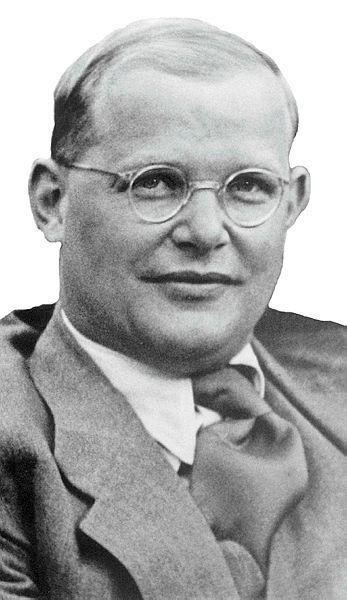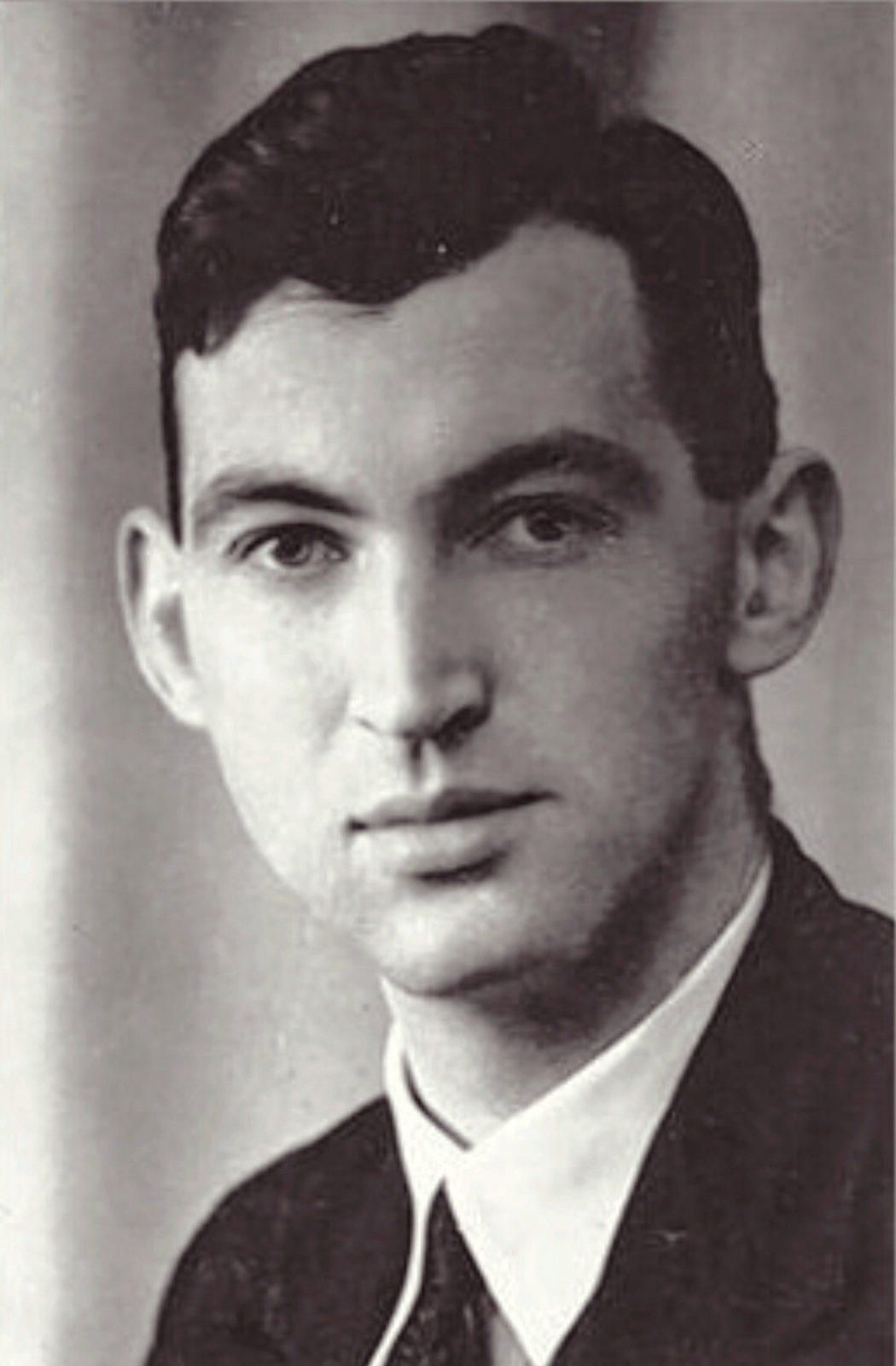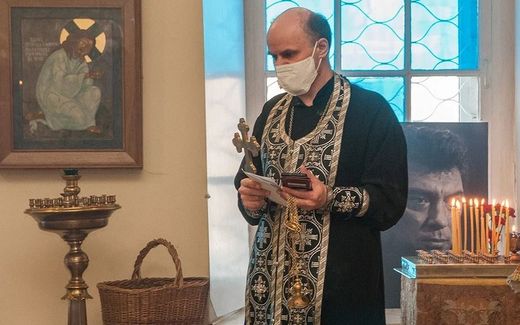We need a prophetic testimony. But where is it?
23-04-2022
Christian Life
Eunice Hoekman-van Stuijvenberg, RD

Photo Unsplash, Jezael Melgoza
Christian Life
"I hear so little about the spiritual world hidden behind this terrible war", one of the readers of the Dutch daily Reformatorisch Dagblad recently wrote in a letter. "Where is our prophetic testimony?"
The need for a voice is not strange in this time of weaponed threats, protests and pandemics. It is a need for something or someone to interpret the meaning of all these events, the need for a prophetic voice that reaches deeper depths than the talk at the bars or during talk shows.
Prophetic speaking has become a theme on the Christian agenda. It is encouraged by seemingly apocalyptical crises these days, such as the Covid pandemic, the climate problem, the war between Russia and Ukraine, and continual streams of migrants.

In the autumn of 2021, more than 180 theologians asked the Protestant Church of the Netherlands (PKN) to take a "prophetical" stance on the climate crisis. The church leadership quickly sent a letter to the deputy ministerof that time, Dilan Yeşilgöz. It stated that the cabinet should immediately carry out the decisions of the climate conference in Glasgow. In reaction, Synod member Rev Marijn Krooneman, minister of the Reformed congregation in Noordhorn, questioned who determined the timing of the prophetic voice. "And whether the Week of Life could, for example, also be a reason to raise it." Because don't unborn lives deserve someone who stands up for them?
The subject raises many questions. What does it mean when someone speaks about the prophetical voice of the church? Does he then refer to a minister who feels pressed to criticise the gender ideology, like Rev Marcus Piehl in Germany? Or does he refer to a church that stands up against the government by housing people whose asylum request was rejected? Do we need to think of something institutional, like a sermon from a pulpit or a synodal decision? Or is it more about personal initiatives?
Three theologians speaking on the prophetic voice
Dutch daily Reformatorisch Dagblad asked three theologians on their views regarding the prophetic voice.
Dr Kees van Ekris
Van Ekris is known for his book "Moderne profeten" (Modern prophets) and podcasts bearing that same name, wrote a thesis in 2018 about prophetical preaching. Since 2019, he has been the leader of the program of Areopagus, the centre for contextual and missionary preaching of the Dutch missionary organisation IZB.
Dr Niels den Hertog
Den Hertog is a Reformed minister in Nijmegen, researched the prophetic voice of theologian and resistance fighter Jan Koopmans, who was killed at the end of the war (1905-1945).
Rev Marijn Krooneman
He was the reason for the writing of this article. He is a Synod member and the minister of the Reformed congregation in Noordhorn
Rather than answering these questions, it is easier to point out historical moments that we have been calling prophetical. For example, the resistance of the German resisting church in the Second World War or the Testimony of 1971, which protested against a theology that focused less on sin, redemption and reconciliation and more on societal problems.
Eleven considerations about the prophetic voice
To explore the field, the Dutch daily Reformatorisch Dagblad asked three theologians, Dr Kees van Ekris, Dr Niels den Hertog and Rev Marijn Krooneman, about the characteristics of the prophetical voice. They point out eleven issues to define the prophetic voice.

Present or future?
To combat a common misunderstanding: prophecy is much more than predicting the future. "Prophets in the Old Testament spoke about the future, but their main message was about the time they lived in", Krooneman says. "They placed the daily life and people's decisions in the spotlight of God's word and law." The same applies to today. Prophecy is about today's life.

Critical or hopeful?
Prophecy points out what is evil. It uncovers the things that distance us from God and what is contrary to His will. "That is the emphasis of Biblical prophets", Dr Van Ekris argues. According to him, that is the core of prophecy. It uncovers, warns and is critical. "Prophecy in the church is a spiritual diagnosis of the condition of the church in the eyes of God. Very important. You can think that you are a flourishing congregation, but God can see it differently."
Prophets side with the voiceless in their critique, Krooneman says. "In the Old Testament, they point to the rights of orphans, widows and poor people. They also hold the elite accountable. That is an actual issue when I read that Patriarch Kirill unquestioningly blesses the leader's decisions. The Russian Church is located close to the government. When church and state merge, critique disappears, and the prophetical voice is silenced."
In short, prophecy seems to have a dark side mainly. Words of critique and judgment resound. However, there is also another side to it, Van Ekris discovered while studying sermons for his thesis. These sermons "did not only talk about sin and shortcomings. Prophecy also has a visionary and redeeming power. Isaiah and Jeremiah are also important comforters. They speak about the Messiah, the redemption that God will work, about the certainty of it. They open up the future."

Inside or outside the church?
You could say that the preaching of the Gospel gives the Christian congregation a prophetical dimension. The preaching talks about sin, conversion and redemption. At the same time, the prophetical voice – in its usual meaning – contains more than that.
It refers to life outside the church, society, and the world. Prophets remind all people of their calling. "You could say: Prophecy is public theology", Den Hertog defines the term.

"You clearly stand up in the forum of society and say: Listen, I am here to tell all of you, whether you believe it or not, that this is what the Holy Spirit says about the world."
Jan Koopmans, the church minister who was part of the Dutch resistance during the Second World War, had one criterium: Does the congregation of Christ still have space to live in obedience to the Gospel? Den Hertog: "If the congregation's existence is threatened, the whole of society is affected. True freedom is only there where God's Word is preached and lived out freely."

Large or little themes?
The prophets of the Old Testament uncovered hypocrisy, judged idolatry and pointed out injustices in relationships. When we speak about the necessity of a prophetical voice in 2022, we often refer to (homo)sexuality, gender issues, euthanasia, abortion, war violence in Ukraine, but also to racism, poverty and climate change.
These are significant societal problems, Van Ekris notices. Sometimes these issues are even global problems. The theologian, however, thinks that prophetical insight is also necessary on the local level. "Once, a minister told me that a congregation had been poisoned by certain spheres and persons for many years. During a congregational evening, after the meditation, one of the main figures in the conflict stood up and said: "I am guilty of this issue." In response, someone else stood up as well. That way, the congregation was freed from the thing that hindered its spiritual life. When I heard that, I thought: Of course, this is the core of prophecy. The Word of God is opened, and people who first grieved the Holy Spirit, now convert."

Congregation or individual?
Is prophecy the calling of individuals or the whole Christian congregation? "Prophets are often the calling voices in the wilderness", Krooneman says. "But whether individuals are called to speak prophetically today? That is something I wrestle with." The minister refers to Philippians 1: "And this I pray, that your love may abound still more and more in knowledge and all discernment." Krooneman: "Paul speaks to the whole congregation here, so I think that we, as church, as Christians together, are called to do what needs to be done."
However, the practice is often different. "The moment you want to institutionalise prophecy, you will lose it", Den Hertog says. "Koopmans and also pastor Bonhoeffer (German resistance fighter in the Second World War, ed.) were lone figures at the time. I think that a prophet will always be associated with a single individual who is led by God's Spirit and sees a deeper layer in society that he then points out to others."

Disregard or acknowledgement?
Prophets were not only loners but they were often vilified as well. People like Bonhoeffer and Jan Koopmans were not honoured until after their death. Den Hertog: "Today, we call them heroes. They were right. But in their own time, that was different. For example, the Christian professor Slotemaker de Bruine found Koopmans a troublemaker."
The same pattern can be seen in the Old Testament. Jeremiah breaks with the smug attitudes of the prophet schools. Yet, he is thrown into a well and imprisoned. Prophecy and acknowledgement often don't go together, Van Ekris says. "Everyone wants to be a Bonhoeffer and desires to be cited. But we should not overestimate the extent to which he was received at the time."
Den Hertog: "People called to be a prophet usually desire someone else to take their place. If we are searching for the prophetical, we must realise that we are looking for something that cuts right through us. You induced me, Jeremiah says. That is different from nicely working in your garden, eating lunch with your wife and going to bed on time at night. The Holy Spirit takes people by the scruff of their neck."

Hesitant or decisive?
The prophets in the Old Testament had to speak, whether they wanted or not. When Jeremiah considers keeping his mouth closed (Chapter 20), his heart and body are on fire. But how are we to look at that today? When should the church raise its voice? And if you think that you need to say something, should you do that full of holy conviction or in humility? In practice, this topic is surrounded by shyness.
Dr Van Ekris does not want to equalise the prophetical voice of the churches to that of the Biblical prophets. "Our voice is much more hesitant. Prophetical speaking only happens with reservation; reservation regarding your own unclarity, hidden motives. That is why I find it better to point out certain issues questioningly. So: "Do we need to talk about this? Do you recognise it?" And not: "This is what the Lord says. This is the problem." Who takes the latter approach places himself on the same level as the Biblical prophets. However, I believe that we should take the individual seriously who thinks he needs to tell us what he saw or heard."
Dr Den Hertog shares the opinion that the church needs to be careful with raising its voice in society. "If you are not careful, the message loses its power. Then the church says something again, but we don't have to listen to it. After the war, the Dutch reformed state church took its prophetical calling very seriously. It put on its prophetical cloak. At a certain point, it even made statements about traffic safety. Oepke Noordmans, the teacher of Jan Koopmans, called the church to be careful with public statements. Before you know it, you pretend to know something about everything. Then people won't listen anymore, even when you have to say something essential, he said."
Another reason to be reluctant is the danger that the church takes a stance that becomes controversial or even harms internal unity. "Different churches turned themselves against the policy about nuclear weapons. That caused estrangement and disunity within the church in some places. It is not smart for the church to take an explicit political stance. It is better to look for a sound not yet heard in society. If you decide to raise your voice, say something new."

Hype or strange sound?
Prophecy is characterised by controversial language. It is not an echo of a societal debate that is already ongoing. Therefore, you can ask yourself whether the church speaks prophetically when she follows the societal trend of the fight against climate change; or when she joins the choir of voices that speak out indignantly when a politician calls for "less less less Moroccans." No, Den Hertog says. "The Gospel tells us things that we would not have thought of ourselves; transverse statements."
Or, as Van Ekris says: "Of course, we join societal debates, but we do so using the language of the Bible and the prophets. Then we talk about guilt, about hardening. Then we show that we, too, are guilty. We show that we are under the judgement as well. Thou art that man."
At the same time, he thinks there is nothing wrong with acknowledging the truth of certain societal statements. Even if that happens only to admit that the church is often too late and guilty. After all, the "prophet's cloak often does not fit the church." In the past, the church was often slow in judging growing evil, such as anti-Semitism in the time of the Second World War or the Apartheid policies in South Africa.

Abortion or climate?
Back to the question of which themes the church should focus on today. "The destruction of unborn life, the demolishing of creation and the unbelief in eternal life are maybe connected", Van Ekris says. "You should not set up the one against the other, but instead uncover the spiritual dimension in these issues. The white westerner leaves God and thinks he is almighty. That is related to the fact that he thinks he can do whatever he wants, fly to any place, and destroy life when he sees fit."
If the church shows that, she will show different loyalties at different times. "We side with people who raise the issue of racism. Will you then support me when I defend persecuted Christians? No? Isn't your anger then very selective? We can learn from other voices but should also measure societal trends ourselves. We have left God."
If something needs to be put on the prophetical agenda, it is secularisation, Van Ekris argues. "Do we actually realise that we have been part of a people, a country, a continent that shouts no to God for thirty or forty years already? Should we not dig deeper to find the root of the issues than we do now? Or do we only fight for our little themes?"

Turning inward or proclamation?
The question of when the church should raise its voice can become something pretentious in that context. Dr Van Ekris: "When Dr Wim Dekker published the first part of his trilogy, "Marginal en missionary” (Marginal and missionary) in 2011, about God's judgment over our churches, this was not received very well. Too gloomy, too negatively, too critical, man said. But if I understand Dr Dekker correctly, he hopes that we develop a spirituality that focuses on humiliation before God. What does the decline of the church have to do with us? How am I guilty of the fact that my brother is no believer anymore? Does that cause humiliation in our attitude, prayer and songs?"
Turning inwardly into ourselves is necessary, Van Ekris says. "A long quarantine with prayer and council. Not to make all sorts of plans, but to turn to God, to listen to what He says to us. Maybe He is sick of Europe. Maybe He is angered about Europe trying to murder His people."
Starting with the church, that is also what Koopmans did. Den Hertog: "Continually, he was busy equipping the congregation. Amid the constant stream of catechism class, house visitation and the preaching on Sunday, he pointed out several issues. He made his congregation aware of what was happening in the world. Several of his sermon sketches have been preserved about concrete subjects: How should you think about the black market? How do you deal with hatred against the Germans and the NSB (Dutch party that collaborated with the German invaders during the Second World War, ed.)? Are you allowed to use white lies when the invader rings your doorbell and asks whether you are hiding Jews?
That way, he taught his congregation and made her vigilant. And once in a while, things accelerate. Then he stands up and joins the public debate. But always with an attitude based on Acts 5: "We ought to obey God rather than man."
In the autumn of 1940, he did not have a choice anymore. In his illegal pamphlet "Almost too late!" he called his fellow citizens to come into resistance against the anti-Jewish measures of the German invader. Because he 'prophesied' with an eye on the Jews: "They are thrown out and destroyed." He was right.
The pastor from Nijmegen wants to hold onto this strategy when it comes to actual themes—sharpening our way of life regarding what we buy at the supermarket starts within the church. Also, concerning sexuality and relationships, Den Hertog would rather not choose for public testimony. Instead, he would see churches reforming their Catechism classes for their members. "There is enough work to do in each home."
However, that does not mean that the church has nothing to tell society. "I notice that we, as Reformed Christians, are intensely focused on issues like homosexuality and gender questions. While, to be honest, most people have a heterosexual relationship. So, what do we have to say to people like ourselves? The world is full of questions concerning sexuality. In The Netherlands, we had the case of the leader of a soccer club who was accused of sexual intimidation. In addition, news came out that there were several cases of abuse at the Dutch tv program The Voice of Holland. I hear from psychologists about young women who are treated because of a sexual burn-out. They are women who have done everything and researched everything possible for whom sexuality has lost any importance.
I can imagine that the church wants to share something of joy and loyalty, showing something of how God meant our relationships to be. When I look at how young people behave like rabbits in discotheques, these principles seem to be dissolved. Who tells our dear boys and girls that sexuality is not the way to get a free drink but is a gift from God Who seeks their good? Do people still know that Christians are not narrowly minded people who only point out what is not allowed?"

Standing up or waiting?
Krooneman: "When I read in the Dutch daily Reformatorisch Dagblad last November that several churches protested against the 2G Covid policy, I thought: If all churches agree on an issue, the minister should listen very well. That the church's prophetic voice keeps silent nowadays is partly due to our dividedness. As churches, we cannot even agree about the content of our prophetic voice. Disunity discredits. On the other hand, a prophetic sound does not become powerful until churches all speak the same words. That does not have to be nationally also, locally, churches can unite around a certain theme."
Van Ekris would like to see that Christians, nationally and locally – for example, as consistory – would seek prayerfully for the working of the Holy Spirit and for issues that would hinder His work. During such a prophetic council meeting, it could be that matters are discovered that are important for society, but that does not necessarily have to be so.
It seems impossible and activistic to organise prophetic moments. "Do not forget", Van Ekris reminds, "that a synod was organised when problems arose in the Early Church. People gathered to pray, read the Scriptures, listen to each other, hoping that the Holy Spirit would teach them the way to go." The theologian asserts that prophecy does not start with confident speaking but with listening. "Giving space to the intuitive feeling that God has a dispute with us and that anyone who is truly pious will listen to Him and obey His Word. Confident speaking does not befit us at this moment. Prophecy is more like a person who walks around in torn clothes and asks: Lord God, what dost Thou say?"
The secret of Rev Jan Koopmans can be traced back to the years in which he wrote his thesis. Between 1931 and 1938, he was pastor of his second congregation in the Dutch little hamlet 's Heer-Hendrikskinderen. He studied, read much in the Bible and conversed (so to say) with reformers. Den Hertog: "You could say he filled his barns there. These times were the fat years for Koopmans. After that, he lived seven more years. In those seven lean years, he drew from the stock he had gathered in the period before." Especially the Reformer John Calvin taught Koopmans that the Scriptures are a living voice that speaks to the congregation and the world today.
Searching for the prophetic voice has everything to do with filling storehouses, praying, reading and listening because you cannot stock prophecies themselves. "Prophecy is something that the Holy Spirit grants to His church when it is much needed. Like the people of Israel had to go out of their tent to reap the manna that God gave, so the church has to look daily for the light and be loyal to God's Word, just like Koopmans did. I am sure that that bedding will be full of streams of the water of the Holy Ghost."
This article was translated by CNE.news and previously published by Dutch daily Reformatorisch Dagblad on April 20, 2022
Related Articles





